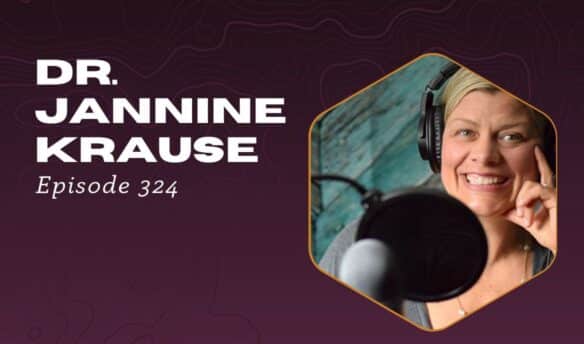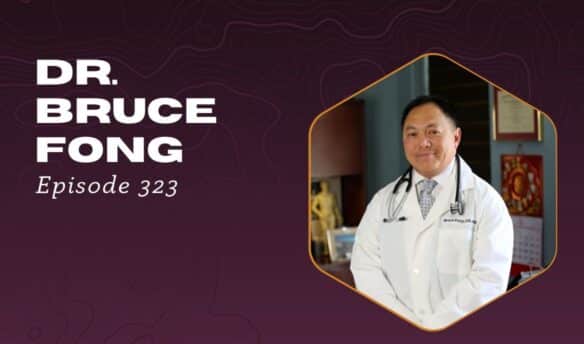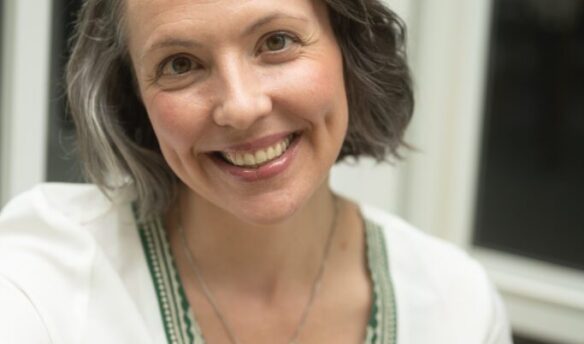Today I am interviewing a board certified doctor of internal medicine and pulmonology, also the chief medical officer of MyMediClique.com, Dr. Joshua Fink. He brings all of his expertise from being a director of clinical trials at the Northern Westchester Hospital. The goal for today’s episode is to show you an amazing health resource and the way you can do research ahead of a doctors visit in order to maximize your time with your doctor. Many of us make an appointment and by the time we get to it we have forgotten all the questions we intended to ask. Dr. Joshua Fink has created MyMediClique to help you with just that.
JF: I could not have asked for a better summary of what our mission statement really is about. People spend less time with their doctors now than they ever did, and some recent research just came out which said that often doctors are spending more time with their electronic medical records than they are actually seeing the patient. I was recently seeing a doctor for a general physical exam in which he never looked at me in the first 8 to 10 minutes of the exam. How can a patient who doesn’t know anything about medicine maximize their time with their doctor? One of the best ways they can do that is by asking smart questions and getting answers.
I find that the environment has changed. We used to go to a doctor’s office and a doctor had time to ask questions. Now, they have to see so many people a day that they don’t have the time for each person individually. After their exam is done, the patient is pushed down the line to the ancillary staff who may not have the expertise, knowledge, or experience to answer questions about their condition. It’s really important that we equalize the playing field, and that we take the research and make it understandable to the everyday consumer. That consumer can then shop for the smartest person that can answer their questions in a way that will be most meaningful for dealing with their condition.
JK: Absolutely. I find that I spend a ton of time on the electronic health records and sometimes feel rushed to get to the next patient. By the time the visit is over I am thinking, “I know I didn’t answer those questions.”
JF: There’s a real dichotomy that exists because people can now get some of the best hospitals and some of the best research. But unless the research is made understandable to the everyday consumer, they have no idea what they’re looking at. They don’t know how to put it in context. You also have geographically isolated areas throughout the world that do not have access to information. What the listeners have to remember is that the next epidemic we’re going to deal with is not going to come from North Dakota or California. It tends to come from either Asia or Africa or other places where there’s a vastly underserved population and where there are not good tools for tracking epidemiology.
JK: Can you tell my audience about how they can interact with your web site?
JF: MyMediClique was designed to take information and make it understandable. If you go to some of the other health information sites there are pages and pages of descriptions about your condition. When you leave those pages, you really have no idea what you just read. We want to take the information and make it easy, concise, and appropriate to length of attention in our society. We added the social media component where we limit ourselves to discussions about health conditions. For example, someone with diabetes can go on the site and join the diabetes group. They could read some of the latest information about diabetes and they can ask questions directly to the administrators who are either physicians, nurses, or critical research coordinators. They can answer questions and give them additional references to further their appetite for knowledge.
We have a whole different section in which we can offer personal research. This site is completely free, but I the personal research does have a small fee.
JK: Tell me a little bit about the personalized research. What happens if you sign up for that?
JF: The questions go to an entire team. You may have a specific question, let’s say it’s on prostate cancer. You can ask about specific medicines that are used to treat it or ask about personal genomic research going on with prostate cancer. A person diagnosed with breast cancer recently asked about the difference between the 2 drugs being offered to her. We will get very specific with the personal research. We’re not trying to be their doctor. We are trying to give them information so that when they go to their care provider they can then go with vetted information that can help them ask questions that will specifically apply to their condition.
JK: I also saw that you have a section for linking folks up with clinical trials.
JF: The clinical trial environment is extremely complicated for people to navigate. So what we’ll do is have you tell us about your disease. We need to see the pathology report. Then we’ll use our knowledge and experience to see if we can match you with any of the trials that are presently out there. It’s been shown repeatedly by multiple sources that patients who have cancer who are in clinical trials tend to do better. Why? Because there are more people looking at their case. That’s important. They could also be getting new therapies that are not yet FDA-approved that may show some benefit.
JK: I want my audience to get a sense of what kind of research background you have, because you are a wealth of knowledge. You were talking a lot about the genetics and the connection with cancer.
JF: We’ve seen how our knowledge about genomics and immunotherapy is starting to actually make a difference in treatments. We understand now that every single cancer is different. For example, more women are living than ever before who have had breast cancer. We’ve made serious serious inroads into lifespan with breast cancer. It’s a whole different playing field now. It all started with looking for estrogen and progesterone and looking for those receptors on the cells. But what we’ve discovered is that the genomics of that cancer may be different for every single woman that has it. There are gene panels which can routinely be done now on pathology samples that tell a woman what her risk of recurrence is. That’s one example of how genomics is changing how we do things.
Another great example is colon cancer. We’ve learned a lot about colon cancer such as the risk factors and what you can do to modify risk factors for the genetics of colon cancer. A lot of people aren’t aware that if there was a history of uterine cancer in the family, it may increase the risk of colon cancer in the family. There are genetic tests that can be done to determine if you’re one of those patients that may have that mutation in your genes, which means you should have a colonoscopy at an earlier stage. How would a patient even know about that unless their doctor gets a chance to talk to them about it?
JK: Absolutely. Dr. Josh, this has been amazing. I know my audience is going to want to learn more from you.
JF: Please go to MyMediClique and write your comments on the articles. We learn when we talk to each other. Some of the greatest breakthroughs in medicine have come from patients noticing little side effects. That’s how Botox was discovered. Come to the website, we’d love to hear from you there.
Listen to my full-length interview with Dr. Joshua Fink HERE and be sure to check out his website, which is a valuable resource that I recommend for all my patients.
youtube





